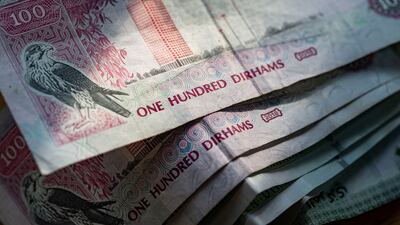The UAE Ministry of Finance’s decision to help businesses make depreciation tax adjustments for investment properties will provide a “short-term tax and cash benefit”, experts have said.
The ministry issued Decision No 173 of 2025 on Thursday, allowing certain businesses to deduct depreciation from their taxable income on investment properties accounted for at fair value – but only if they elect the realisation basis for capital gains and losses. It is applicable for tax periods starting January 1, 2025.
The deduction will be limited to the lower of the tax written down value of the investment property, or 4 per cent of its original cost for each 12-month tax period, or a pro-rated amount if the tax period is shorter or longer than 12 months, or if the property was held only for part of the tax year, the ministry said.
Fair value is the estimated price an asset would sell for on the open market, while realisable value is the estimated amount that can be obtained from an asset after deducting any costs necessary to make the sale or completion. Written down value is the net value after deduction of depreciation, said Anurag Chaturvedi, chief executive of financial advisory Andersen UAE.
He said this was “a welcome clarification” for taxpayers holding investment property at fair value under the International Financial Reporting Standards. Businesses opting for the realisation basis must “carefully compute” depreciation deductions in line with the new rules, he added.
“In simple terms, many companies own investment properties that increase or decrease in value over time. These values are updated in their books [fair value accounting] but, until now, they could not deduct any depreciation for tax purposes – meaning higher taxable profits and more tax to pay,” said Thomas Vanhee, founding partner of boutique tax advisory services firm Aurifer.
“With this new decision, companies that choose the realisation basis [ie, they only pay tax when a property is sold, not every year based on value changes] can now deduct a portion of the property’s cost [up to 4 per cent annually] from their taxable income.”
It provides a short-term tax and cash benefit for businesses through the depreciation granted, something which did not exist under the regime applicable up to the end of 2024. It also better aligns with the property’s economic life, Mr Vanhee said.
The decision impacts businesses, not people, and further strengthens the UAE’s tax framework, he said. This is “a significant change from prior practice”, where depreciation was not permitted on such properties if fair value accounting was used, he added.
For example, if a UAE company owns an investment property that originally cost Dh10 million ($2.7 million), recorded at fair value under the IFRS, and it chooses the realisation basis for tax purposes, the allowable depreciation would be 4 per cent of the original cost, or Dh400,000, Mr Chaturvedi said.
The UAE introduced the federal corporate tax with a standard statutory rate of 9 per cent starting from the financial year beginning on or after June 1, 2023. It took the income of companies exceeding Dh375,000 within the taxable bracket.
Business owners in the country would be subject to corporate tax only if their turnover in a calendar year exceeds Dh1 million, the ministry said at the time.
Abu Dhabi’s biggest listed developer, Aldar Properties, welcomed the “progressive and well-calibrated” decision and said it ensured “tax neutrality and equity”, with deductions available to businesses that hold investment properties on a historical cost basis.
The decision also provides clarity on how tax depreciation applies in cases of property transfers (between related or third parties), developments and claw-back scenarios – ensuring businesses have a clear view of their compliance obligations and financial planning, the developer said in a statement on Friday.
Aldar operates two business divisions: Aldar Development and Aldar Investment. The latter's portfolio of income-generating properties had a gross asset value of Dh25.8 billion as of December 31, 2024.
Faisal Falaknaz, group chief financial and sustainability officer of Aldar, said the decision “creates parity” between different accounting treatments and helps companies plan long-term capital deployment “more effectively”.
Gaurav Keswani, founder and managing director of Dubai-based financial consulting firm JSB, said it's not a decision to be taken lightly.
"Once a business opts in, it's irreversible and if the property is later transferred, there's the potential for a claw-back of the tax benefit. So, careful planning is essential," he warned.




